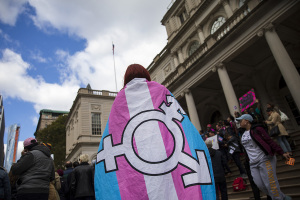Tea Party, 'Christian Right' Less Popular Than Atheists, Muslims
David Campbell, associate professor of political science at Notre Dame, and Robert Putnam, professor of public policy at Harvard, reported their findings from data they had been collecting in an opinion editorial for The New York Times, saying that the Tea Party is “less popular than much maligned groups like ‘atheists’ and ‘Muslims.’”
Campbell and Putnam found a strong link between the Tea Party Movement and social conservatives. Tea Partiers are strongly pro-life and prefer “deeply religious” politicians.
Campbell and Putnam were able to track changes in the Tea Party Movement using data they first collected in 2006 for their book, American Grace: How Religion Divides and Unites Us. For that book, they interviewed 3,000 Americans. Over this past summer, they returned to re-interview as many of those respondents as they could find.
Comparing the current data with the 2006 data, Campbell and Putnam found that Tea Party supporters are generally highly partisan Republicans who have been deeply involved in politics in the past. They also found Tea Partiers to be mostly white, and to have “low regard for immigrants and blacks.”
Despite the common perception that the Tea Party is a mostly economic-conservative movement, Campbell and Putnam found that concerns about a declining role of religion in public life was more likely to animate Tea Partiers than economic concerns.
“This inclination among the Tea Party faithful to mix religion and politics explains their support for Representative Michele Bachmann of Minnesota and Gov. Rick Perry of Texas. Their appeal to Tea Partiers lies less in what they say about the budget or taxes, and more in their overt use of religious language and imagery, including Mrs. Bachmann’s lengthy prayers at campaign stops and Mr. Perry’s prayer rally in Houston,” Campbell and Putnam write.
The authors also note that the popularity level of the Tea Party is about the same as that of the Christian Right. They also compare the Tea Party to the Anti-War Movement of the 1960s and warn Republicans against embracing the Tea Party too closely.
“Today’s Tea Party parallels the anti-Vietnam War movement which rallied behind George S. McGovern in 1972. The McGovernite activists brought energy, but also stridency, to the Democratic Party-repelling moderate voters and damaging the Democratic brand for a generation. By embracing the Tea Party, Republicans risk repeating history,” Campbell and Putnam write.
"Do you want a quote before or after I laugh out loud," said Tea Party Nation founder Judson Phillips. "We constantly hear from the left that everyone hates the Tea Party, that we're less popular than everyone else, but the results speak for themselves. I spent several days in Wisconsin and I can assure you we're pretty popular based on the outcome of most of the recall elections. But then again, we're not trying to be popular, just effective."
In an earlier interview, Campbell told The Ticket that he doesn’t consider his research as politically motivated. “I don’t have a particular dog in this or any other political fight,” he said.





























